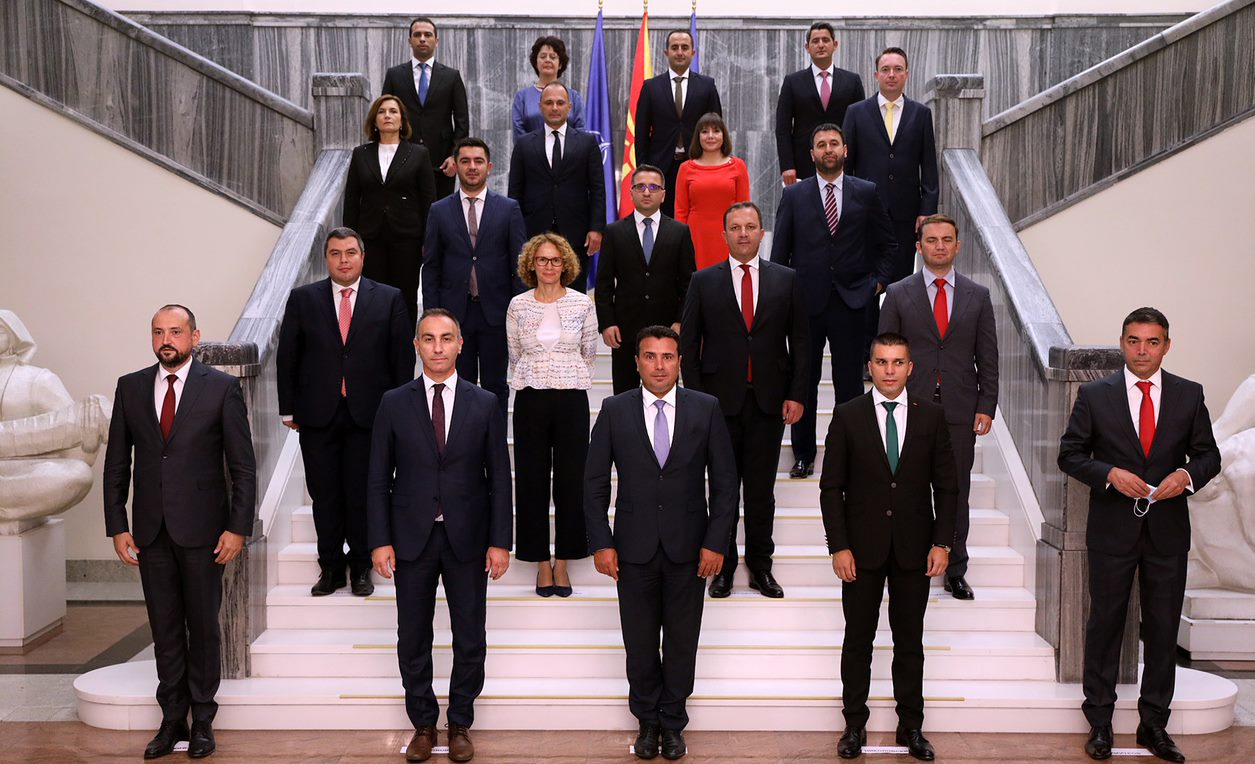This week, North Macedonia will celebrate its fifteenth anniversary of becoming a European Union (EU) candidate – an occasion which many anticipated would kick off accession negotiations, until Bulgaria vetoed the country’s first ever inter-governmental conference. Despite this upsetting turn of events, North Macedonia should not lose hope, but continue on its path of effective policy implementation, public administration reform and the strengthening of ministries to build a strong, democratic executive branch. Failure to do so could both stall North Macedonia’s democratic development and provide an excuse for further delays in EU accession talks.
In this pivotal moment, the International Republican Institute (IRI) has produced and submitted groundbreaking research that offers best practices and recommendations for the government tasked with securing EU membership. IRI’s white paper, “Effective Ministers: How to Achieve Results and Gain Citizens’ Trust” supports North Macedonia in building a strong executive branch that will be necessary to consolidating the country’s democratic gains and delivering on EU accession.
Promoted at an online public event in North Macedonia, below are three key suggestions from IRI’s research that will strengthen the country’s democracy and give them a head start once the accession negotiations begin:
1. North Macedonia should maintain a clear vision for its democratic development that is supported by effective policy implementation.
Through its generous Economic and Investment Plan, the EU is mobilizing up to 9 billion euros for sustainable connectivity and inclusive growth in the Western Balkans. Though an incredible opportunity for development, the EU’s investment also presents a challenge to governments like North Macedonia’s, which must learn to become good stewards of EU resources. According to IRI’s white paper, it is critical that North Macedonia’s government maintains a clear vision for how to develop the country, establishing a centralized system that monitors policy design and implementation to assure good governance. Such a system is crucial for an efficient and effective delivery of EU investment funds and is necessary to ensuring government accountability ahead of potential EU membership.
2. Professional public administration is needed to support good governance.
Ministers cannot alone ensure good governance in North Macedonia – a professional public administration system must guarantee their democratic policies are felt by citizens. In its report, the EU notes that while North Macedonia has made progress in public administration reform, the legal framework that governs the hiring of public sector employees must be implemented consistently so that it produces civil servants committed to the country’s democratic development. Principles such as merit, transparency and equal representation should be considered during both public officials’ recruitment processes and throughout their daily work, adhering to the standards of behavior included in the Code of Ethical Conduct for Government Officials.
3. Diplomacy led by strong ministerial cabinets is necessary to opening an accession path.
Finally, North Macedonia’s EU accession will not only require rigorous reform implementation, but also effective diplomacy by the ministers’ political teams and special advisors to strengthen regional collaboration and improve bilateral relations. To that end, the white paper suggests amendments to better regulate the composition, hiring and responsibilities of ministers’ political cabinets, so they can be more effective in addressing strategic challenges such as North Macedonia’s flawed relationship with Bulgaria, which resulted in the veto of accession negotiations.
At the white paper’s promotional event, Minister of Defense Radmila Shekerinska underscored the importance of IRI’s work to strengthen North Macedonia’s ministerial cabinets by highlighting how the Institute’s assistance to her own cabinet helped the country obtain NATO membership:
“The support of IRI we used to improve the situation in our ministry, and it was really for the benefit not only of the ministry, of the army, but also for North Macedonia as a member of NATO.”
Encapsulating many of IRI’s lessons learned from its governance program, this white paper is a significant resource in North Macedonia’s journey toward improved governance. It is now up to the governments of the region and the EU member states to demonstrate political will and decisiveness to overcome the troublesome past and pave the way to a more united and inclusive Europe.
Top